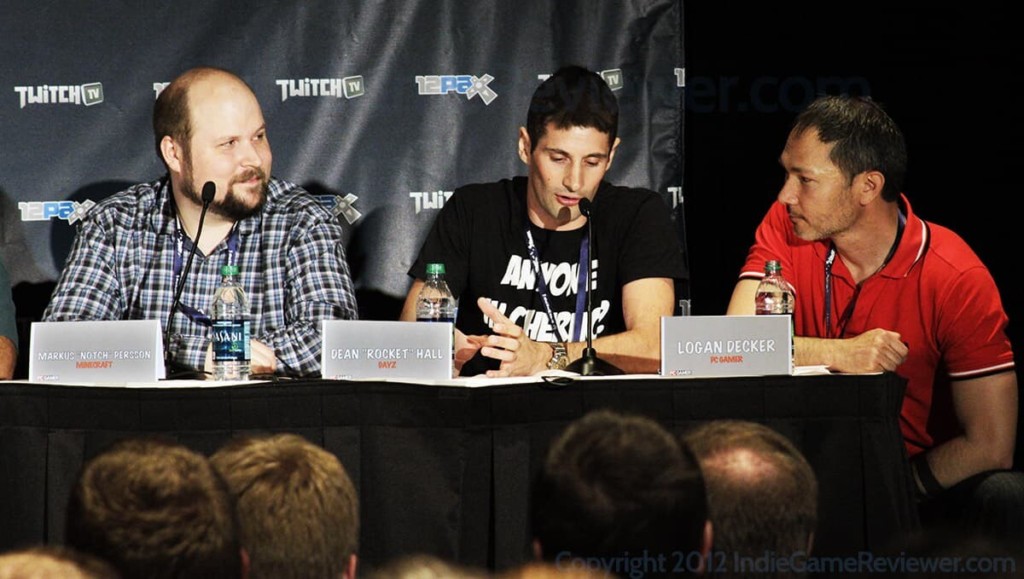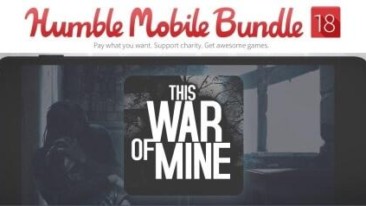Indie Game Development – What To Expect
What is the life of an independent game developer like? With the ever-growing popularity of indie games, there has also been an explosion not only of new game developers, but also college courses, job descriptions and even genres.
As “indie” is no longer an outlier or niche of the marketplace (instead, it’s a genre unto itself that traditional consoles now use as a selling point to earn market share) getting established can be a complex, lengthy and risky uphill slog.
On the other hand, persisting and getting a game to market can be hugely rewarding, both on a personal and financial level.
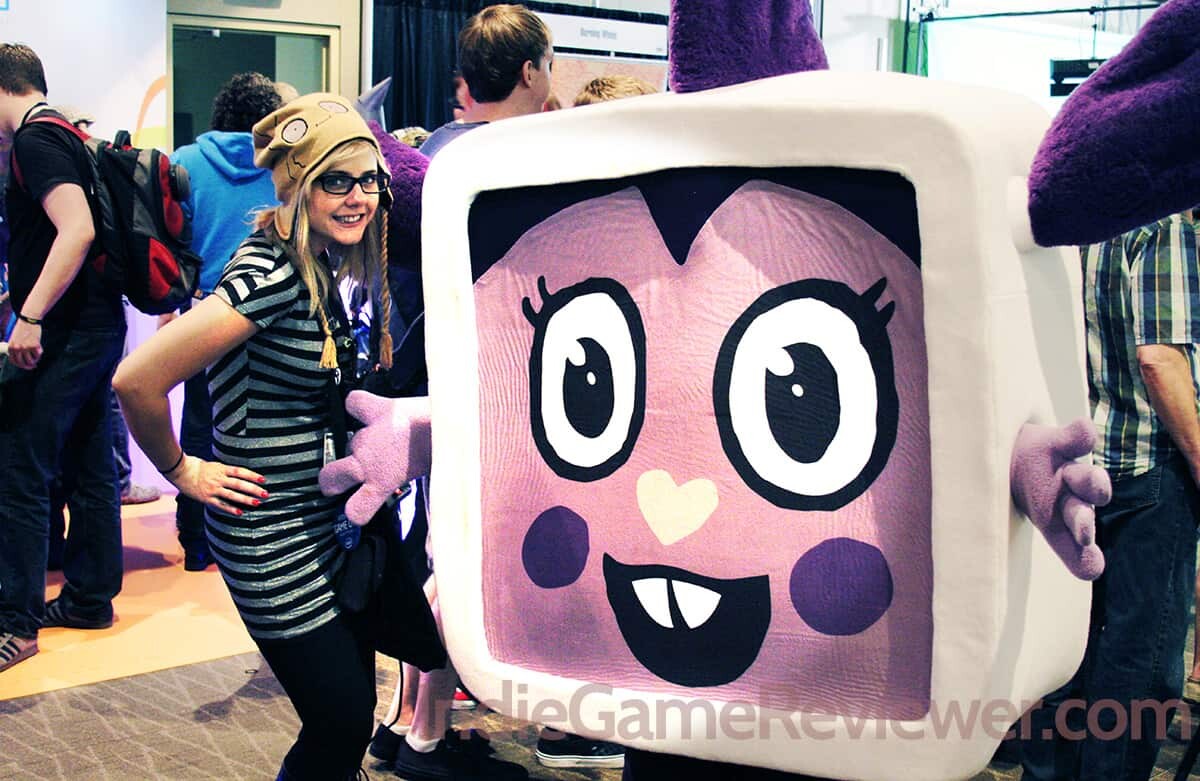
Below, we’ve assembled the advice of several established and experienced developers who have found success in indie game development. Read on as they kindly share the positive and negative sides of working as a video game programmer, developer, designer, promoter and business administrator.
Here is our guide to the game developer’s life:
Meet the Devs!
Nina Freeman
Level Designer – Fullbright

Known for her intensely personal games exploring sexuality and romance, Nina Freeman’s first commercial release is Cibele, an exploration of falling in love via an online game. Creatively combining full-motion video of Freeman herself with simulations of a fictional MMORPG – right down to the chat windows – Cibele was one of IGR’s Best Walking Simulators of 2015. She was also a designer on How do you Do It? which she made with Emmett Butler, Decky Coss and Joni Kittaka. Most recently she has been developing Tacoma at Fullbright.
Joseph Humfrey
Art and Code Director – inkle Studios

inkle was founded in 2011 by two game developers at Cambridge who shared “a passion for storytelling and beautiful design.” Their interactive literary game engine has been used to produce their multi-award winning games that include the steampunk-themed 80 Days as well as their adaptation of the Steve Jackson’s Sorcery! series of game-books.
Itay Keren
President and Founder – Untame Games (appears back, and right)

Based in Brooklyn, New York, Untame is an independent games studio run by husband and wife team Itay Keren and Julia Keren-Detar. Their most recent success was the 2015 release Mushroom 11.
John O’Neill
President – Spark Plug Games
 Spark Plug Games is the studio behind a number of popular mobile games, including Puzzle Quest 2 and Witch’s Workshop, as well as the upcoming endless robot runner MechRunner and Firefly: Online, a multiplayer RPG based on the Joss Whedon cult TV show.
Spark Plug Games is the studio behind a number of popular mobile games, including Puzzle Quest 2 and Witch’s Workshop, as well as the upcoming endless robot runner MechRunner and Firefly: Online, a multiplayer RPG based on the Joss Whedon cult TV show.
Christopher M. Park
Founder, CEO, Lead Designer – Arcen Games

Arcen games is a self-proclaimed “tiny company” whose stated mission is “to deliver an unparalleled experience” with their games. Their story began with AI War, but the prolific studio’s releases since have included bold and experimental fare from all over the map: Skyward Collapse, A Valley Without Wind (1 and 2), The Last Federation and Shattered Haven, among many others.
Emeric Thoa
Creative Director – The Game Bakers

The Game Bakers are best known for their Squids series of cartoon-inspired tactical RPGs for mobile. They’ve also got a boss brawler, Furi, due out for PC soon that features character design by Afro Samurai creator Takashi Okazaki!
Howard Tsao
CEO – Muse Games

New York City’s Muse Games is the studio behind CreaVures, Hamsterdam and – most notably – Guns of Icarus and Guns of Icarus Online, which explore a steampunk-themed world of dirigible battles in the clouds.
Matt Viglione
Game design, Writing and Art Direction – SomaSim

Based out of Chicago, SomaSim are fans of sim games like the Caesar and Pharaoh series. They released their debut title, 1849, in May of 2014, and followed it up with Project Highrise in 2016.
What is it like to work in an indie studio now?
Thoa: It’s like being in a music band. You can be successful and admired like an artist and a star, or you can go from small gig to small gig, hoping it takes off one day. But in both cases it’s very satisfying and tiring at the same time.
Park: Much more challenging than in 2012 or 2013, but still far easier than in 2009. The market has really been flooded, but at the same time there actually IS a market now.
Humfrey: Platforms like Steam and the App Store have created a blossoming market, and tools like Unity have leveled the playing field for developers of different backgrounds and years of experience. You no longer need a vast team to build a technically and visually impressive game.
With the minimum bar to entry being lower, there’s also a quality bar that’s not always being met in some cases, either in terms of derivative designs or technical competence – bugs, performance and so on.
But the sheer number of high quality games and the relatively limited size of the audience has caused the total spending to be spread thinly among developers, making it increasingly difficult for even the best developers to make a living out of it.
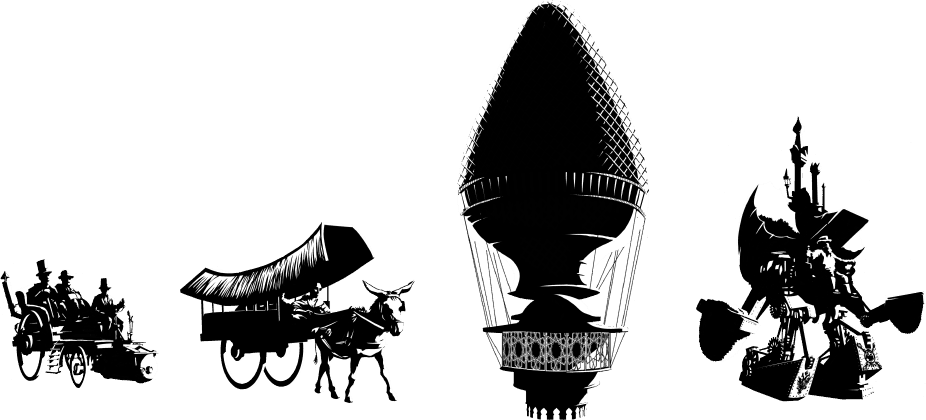
Overall though, I shouldn’t be too grumpy – we’re happily doing fine, and opportunities for indie developers have never been better!
Viglione: I have a good friend who started up a food truck a few years ago. He scrimped and saved and built a pretty successful small business around that truck. Now he’s pouring the funds from that truck into opening a brick-and-mortar restaurant. And if that restaurant doesn’t work out, it doesn’t matter how well he did with the food truck, he’s going to have to reconsider his future in the culinary world. Our first game did well enough to fund our second. So that was our food truck.
We’re getting ready to launch our second game soon. The next game is correspondingly larger in scope, and it needs to do correspondingly better or we’ll have to reconsider our future in the industry. We’ll only be around for game number three if game number two does well. Because of that, we end up agonizing over everything. It feels like every decision we’re making is consequential beyond its particularities.
Howard Tsao: We moved to a new space late last year, so the working conditions improved! We no longer had to battle ventilation that spewed out dust and potentially hazardous fumes, a constantly broken heater, and rat droppings. In fact, the first purchase I made for the office during the move-in was the best infrared heater I could find. We’ve been happier as a result.
Freeman: I don’t think any two indie studios are alike, because the word indie means different things to different people. For me, I work at a small studio of about eight people and have worked on other games with even smaller teams, so that’s the kind of experience I’m coming from. I have worked at jobs of variously sized teams, some very big and some small. I really like working on smaller teams, because there’s always a lot of room for fast iteration and feedback between individuals. My design process is very much oriented around iterating – making a small prototype in a day or presenting a test case and showing it to someone. Working at a small studio allows me to embrace this process, and lets ideas grow and change quickly – for me, this is the best way to make games.
What is the workflow?
Thoa: Every studio’s different, but for us at The Game Bakers, it’s pretty classic. We define a game concept, make a prototype, pitch it to get the funding, then work on it for a year or two and try to make it as original and outstanding as possible. The part that’s not classic in our case is that the team is dispatched all over the world, so we work a lot with Skype, Dropbox and other online communication tools.
O’Neill: Collaborative design ideas, multiple iterations, a lot of juggling of priorities between paid work and passion work, and somehow the end results come out when they do.
Park: That depends on the day. Given that I have so many different hats that I wear, I tend to bounce around between tasks that are most urgent. I have an overall plan that I set out for my week, my day, my month…but then there’s a certain amount of time where other people need things from me, or unexpected things crop up, and I have to deal with that.
Humfrey: We’ve always had a prototype-as-you-build sort of workflow, which isn’t very sensible; on 80 Days we built most of the features at least two or three times before we ended up something that we were happy with. On our brand new, yet-to-be-named project, we’re trying to get more of the prototyping done up front, with the goal of making each part of the game work independently before assembling them together in the production phase.
Our team size is slowly growing. We hired our first employee last year, and we hire an increasing number of contractors for each project. Formalizing the development pipeline isn’t just sensible, it has become a necessity. We’ve also collaborated with outside developers, such as Meg Jayanth, who led the world-building and writing on 80 Days.
Viglione: That very much depends on where you are in the development cycle – especially when you make simulation games. At first, you can really control what you’re working on. You can design and code up the systems, build assets and do a lot of iteration – so the workflow is really quite open. The challenge at this point is to maintain focus on creating a concise game and not to faff about too much on experimentation. Sometimes it’s really hard to let go of a design idea, but if it no longer fits the scope in time or cost, you’ve got to be brutal.
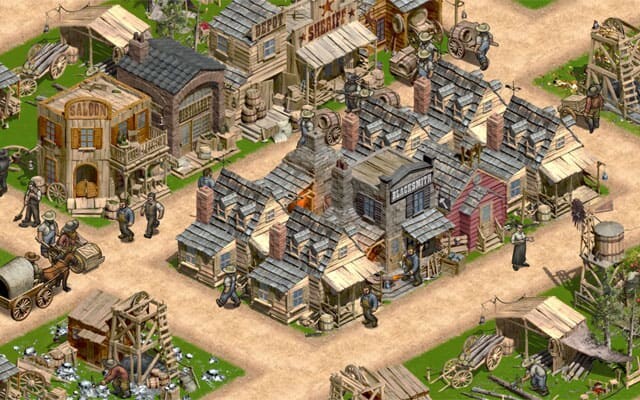
Tsao: A lot of the ideas for games and major features and systems we end up jamming together. Once we have some ideas that we like, we would try to develop them into more concrete details. We prototype very early with gray boxes to test out ideas and mechanics.
Once we are ready to develop it more fully, we would set sprint goals and tasks, where each sprint is say three weeks, and work on them. At the start of each sprint, we typically plan out what everyone’s working on across projects, and we more formally meet every week to go over our progress. We also check in with each other as we need help and on a daily basis.
Keren: While Mushroom 11 started as our Global Game Jam experiment, it quickly became a whole team effort. It’s true that I end up making final calls for various design aspects, but great ideas for visuals, story and puzzles have come from each member of the team. Design ideas mostly start in my sketchbook, then get prototyped in a test scene, and if they feel right, they end up in the game.
The Mushroom 11 teams consists of two married couples living in different states and a handful of other contributors. We work very long hours – though from the comfort of our home or the local coffee shop – while collaborating with our teammates.
Visual designs are usually based on the general narrative and artistic direction, and start in Simon’s sketchbook. Julia is a UX design expert, and she helps with finding the right balance and order of challenges, while contributing to all other aspects of the game, and so does Kara, the producer. This is a true team effort, bringing ideas from the entire team to combine in a meaningful way to create a unified, coherent experience.
Freeman: Workflow has differed quite a bit from project to project for me. For Cibele specifically, the game started out as a prototype I made in a graduate school class. It was made in a week.
I playtested that prototype on my own and decided that it was interesting enough to move forward with, so I gathered a small team to work with me – a programmer, illustrator, composer and filmmaker. In this case, I was the team leader. It was super hard! I learned a lot about how important it is to check in with teammates regularly to make sure everyone was on the same page. This was important, because we were all working remotely, and weren’t able to meet up more than once a week. And later, we were actually living in different cities. I think that weekly and sometimes daily check-ins were what brought Cibele to the finish line. It’s easy to get lost in one feature or part of the game, but it’s more important to keep pushing forward, even if every little thing you make isn’t perfect.
So, checking with each other, giving feedback, and deciding when something was good enough to ship…that was key. For us, it was more important to ship the game than to make something perfect. I think that perfectionism is actually what prevents many games from shipping. So I tried my best to avoid that, and we shipped it after a year and a half of weekends and work after day jobs/school! I’m really proud of everything we learned and made during that process!
How do you handle publicity?
O’Neill: We hire really smart people to handle that for us. We’re developers, not marketers.
Thoa: First and foremost, we try to have an outstanding game: an original concept, a unique art direction, a unique soundtrack, and exciting gameplay. A strong pitch is necessary to get any kind of publicity. The rest is a lot of work, but pretty standard: a good trailer, going to some shows to meet players and journalists, sending out preview builds…as a small studio we can’t rely on the production values themselves. We’ve got to build this initial hype from the game, or else it’s extremely hard to grab anyone’s attention at launch.
Park: [Our publicist] Erik Johnson! But in general, we try to make something interesting, get it in front of people we think might have an interest, and pursue any avenues where we get traction. It’s a long and hard process and doesn’t always work, but it seems to work better than advertising – in our past experience, anyway.
Humfrey: The easy answer to that is that we have an excellent publicist in Emily Morganti, and she’s extremely good at her job!
The more nuanced answer is that up until now we’ve primarily made games that sell at a low price point, partly due to production value of coming from the mobile space. At that price, people are willing to make impulse purchases, so our strategy has been to avoid hyping too much in advance. Instead, we planned a short lead time, so that as soon as players heard about a new game, they were able to go out and buy it.
For a lower value product, people can afford to hear about it fewer times and make an impulse purchase, whereas for a more expensive one, they need to hear about it multiple times from multiple sources before they can be persuaded to pay any attention at all.
Viglione: With as much help as possible. There are SO many games…but I don’t want to get into a discussion of market glut. It’s really about finding out how your target players find the games they play and then talking to them there. If you’re making a hardcore RTS, you probably want to look where hardcore RTS players hang out, and then try to let them know about your game.
If someone on your favorite RTS forum that you have a history and relationship with says, “This game is awesome,” I think the latter voice has far more authority.
Keren: While we ask for assistance from notable PR experts, at the end of the day it is important to maintain a close personal connection with various media people, especially as an independent developer. We try to focus the message and then deliver it personally, sometimes even face to face, through our personal relationships with media people.
We also maintain our own social media pages, and we believe that our fans really appreciate the personal, candid approach.
Freeman: For Cibele, I was pretty dependent on social media, events and press coverage. I try to fly myself out to as many events I can every year. I submit games and talks to all the festivals I want to go to, because there’s always a chance to either get publicity from that, or sometimes even travel money to get to them (although this is rare). Meeting people at these events helped me a lot when promoting Cibele. Being friendly to people and making positive connections can really make a difference – the positive tweets you might get from these people when your game comes out are super important, in my experience.
Also, I met a lot of press folks while going to events and kept in touch with many of them. Some of which wrote about Cibele when it came out. If they didn’t write about it, many of them shared something about it on Twitter. All of this stuff adds up, and Cibele had a great amount of visibility when it launched. So, for me, making friends and connections and trying my best to be visible both online and at events helped Cibele get the publicity that it achieved.
How’s the return on investment?
O’Neill: It’s wonderful when it happens. Often it’s not there, so you have to balance it with other co-branded opportunities or new platform launches.
Thoa: Breaking even is a good start. We’ve never been in this business to make back ten times what the game budget cost. The goal is to secure the next game, with same or better working conditions. If we make twice the budget, it’s a success. From a more human point of view, we have a great return on investment by being a small team of great people who are independent in what they do.
Our lives don’t depend on some investor in a meeting room that we don’t know. (I’m not saying that these guys are evil, but when the decisions that impact directly your life are made by people you know directly, that’s way less stressful!)
Park: It depends on the game. In six and a half years, I’ve made I think nine games. On one of them there was more than 1000% return on investment (which was very low to start with). On half our projects, we haven’t even broken even. I worked for free in 2012, unfortunately, and I’ve had to make capital investments in the company a lot more times than I would have preferred to. It really just depends on the game.
Humfrey: We aim to invest relatively little, so pretty good! Some creatives and tech start-up founders seem to take an “all or nothing” approach. They plow all their savings – and an investor or publisher’s cash, and even contributions from friends and family – into a moonshot project. They spend all their money in one go and build their dream game (or tech product). If it succeeds, then they’re allowed to make another, and if it fails, they at least know that they never compromised on their vision.
We’re a little bit more conservative; we certainly don’t spend more than 50% of the cash we have in the bank on a new project, and we aim to spend much less. But that doesn’t mean that we’re creatively compromised – the constraint helps foster innovation, and gives us creative freedom – if this project fails, we can try something different. (Thankfully that hasn’t happened yet!)
Keeping your ambition under control helps to ensure that you finish projects: 80 Days was made in under a year. Having said that, our ambition for our next project is fairly huge (oops!), but we’re always on the lookout for intelligent, efficient solutions to problems that might be solved by brute force at a larger company.
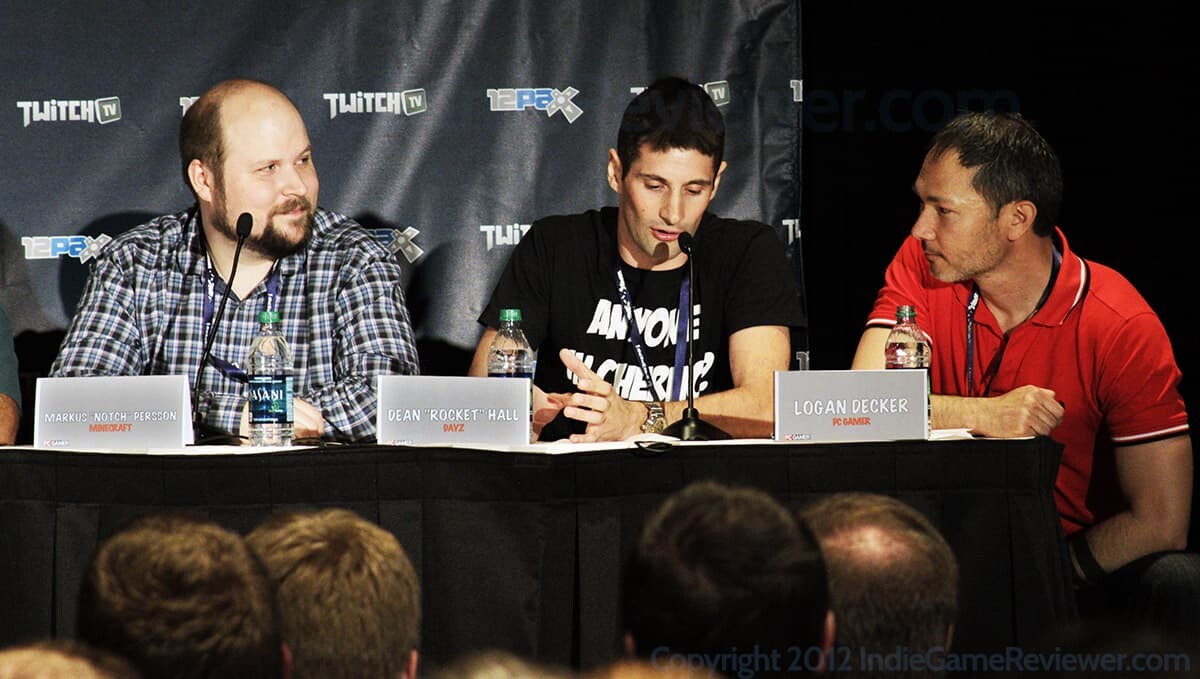
Photo copyright KMS1974
Tsao: Guns of Icarus has fortunately done well enough for us to keep making games for a while. We’re working on Guns of Icarus Alliance, the PvE expansion and version with much more of a worldview and macro factional conflict, as well as another mobile project called Hamsterdam. Hope we get to keep working on projects we are passionate about.
Keren: None of us are in this business to make money. We’ve been fortunate enough to get funded, and we’ve all been doing some outsourcing work during the long development process. If it was just about the money, we could easily get good paying jobs, but the satisfaction of being creative and controlling our own destiny is definitely worth it.
Freeman: It was basically all positive gains for the Cibele team. We didn’t invest any amount of personal savings into the game – we just invested our time. We were lucky enough to be able to make the entire game on weekends and after work. I put a little money into it for festival submission fees, LLC fees and some commissions, but that was affordable for me, thankfully. It was the first game I’ve ever tried to sell, so the return on investment was both monetary and the learning experience. You learn a ton from the first time you put a game on the market. That experience is priceless.
Indie Game Development Perks
It used to be you could look forward to showing up at a central office, get free Mountain Dew and Cheetos and play at the foosball table. But times have changed. Teams may work remotely, using source control in the cloud and maybe never even meeting in person before shipping a game.
There are now also crowdfunding options that can pre-test public enthusiasm for a game concept and subsequently raise hundreds of thousands, even millions of dollars and then go on sale while still in development as “Early Access.”
We asked our developers about their idea of perks for today’s aspiring indie developers and arranged them in a couple over-arching categories: flexibility, creative freedom, personal stake, relationships and – perhaps surprisingly – stability…
Flexibility
Park: Being able to work your own hours is excellent…except then often there’s guilt or anxiety that can lead you into trying to work ALL the hours.
Thoa: You can go to the dentist or do your Christmas shopping without having to ask for a day off. I mean, there’s way less overhead and management constraints. Having flexibility in your life is a real benefit.
Humfrey: The ability to choose when and where you work.
Viglione: Geographic liberty. As long as we’ve got a decent internet connection and a laptop, we can work. Our family and friends are spread out all over the US and Europe, so if they don’t mind having us, we can spend time with them. And you can live and work where you feel most at home – you don’t need to live in a specific city or metro area because that’s where you work. Being able to move because you want to is a privilege that not many have and should not be taken lightly.
Keren: Working from home or a coffee shop. We work extremely long hours, but really – can this be called work?
Freeman: Awesome, fast feedback loops. All parts of the game can get iterated on really quickly when there are only a few developers that need to communicate.
Creative Freedom
O’Neill: Experimental development.
Humfrey: Jon and I are both generalists; we love variety in our jobs. Jon gets his dream job of writing stories and building worlds whilst using his mathematics background to design clever procedural narrative systems and do the end-to-end programming of them himself.
I was pigeonholed as a gameplay programmer in the game industry, while at inkle I also get to choose the art direction of our project. We both love game design, and we’ve even come to love the business side of things – I see it as the creative process of designing a project that’s compelling enough that people will want to spend money on it. The extent of variety I get in this job is enough reason to be indie on its own.
Thoa: You get to bring a lot of yourself in the game – more than, let’s say, a AAA developer on a 200-person team who’s going to work exclusively on the game’s “city traffic” system for five years.
Viglione: Creative control. I can’t overstate how satisfying it is to be able to see the game you want to make take shape according to you own vision. It’s completely worth it in every way.
Freeman: The Cibele team worked on weekends and had other income sources. This gave us a lot of room to experiment with the game, because we weren’t financially dependent on it. This isn’t possible for everyone obviously, but it worked very well for us and the room to experiment was essential for me.
Personal Stake
Thoa: You (should) feel more responsible – you’re part of a small team that’s like a pirate ship. Everyone is important. The ship won’t reach the coast if someone starts slacking off. In bigger teams, it’s easy to feel that the responsibility is on someone else’s shoulders, and I don’t think it’s a good thing.
Keren: Having control over your destiny, and knowing that your success (hopefully) is tied 100% to your own work.
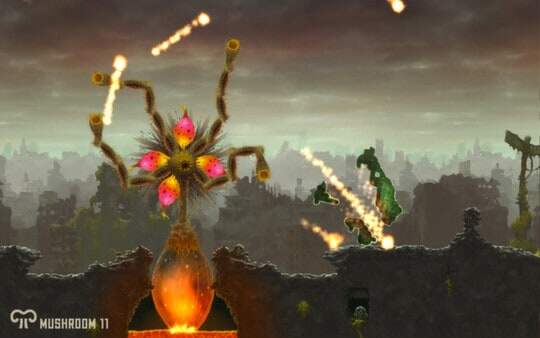
Relationships
O’Neill: Lots of support from big players like Sony and Unity.
Viglione: Great people. We get to pick the people that we work with. When you’ve got a corporate gig, sometimes you’ve got to work with people that are unpleasant or lazy or are just keeping a chair warm. And that’s a terrible experience. I love working with our team that we’ve got right now and I feel motivated to make a great game so that we can do it again and hopefully find a few more fantastic collaborators for the next one.
Tsao: We get to develop very close relationships with members of our community. The people we’ve met over the course of the games’ development reaffirm why we want to do what we do.
Stability
Park: The pay can be awesome…except when YOU pay for the privilege of being able to work.
Humfrey: Counter-intuitively, working as an indie is more stable, or at the very least, predictable. Although we may not be a huge company, we know exactly how much money we have in the bank. If our company were to go under, we would have plenty of quantifiable degree of advance warning. Working in a larger game company, you have nothing to go on other than general morale, and rumor and speculation. Then everyone plays Russian roulette to see who’s going to get made redundant.
Indie Game Development Pitfalls
Sounds like a dream job, right? Well, there’s also a dark side. Luckily, our devs have some warnings about the most common pitfalls:
Timelines and Budgets
O’Neill: You can be broke for a long time, there’s tremendous instability, and you often feel like you carry the weight of the world on your shoulders in running the business.
Park: If you think it’s going to take six months, it will take 12. If you think you’ll be done in January, then your actual release should be in March, because you need a month or two of final testing AND time to get publicity and press stuff going before it comes out.
Keren: Timeline and budget can quickly derail. Remember Hofstadter’s Law: it always takes longer than you expect, even when you take into account Hofstadter’s Law.
Freeman: If you need another job to support your game-making, it’s really tough and draining. It’s hard to make games when you spend your time expending energy on other things. (P.S.: You can still totally make this work! I did, despite how stressful it was.)
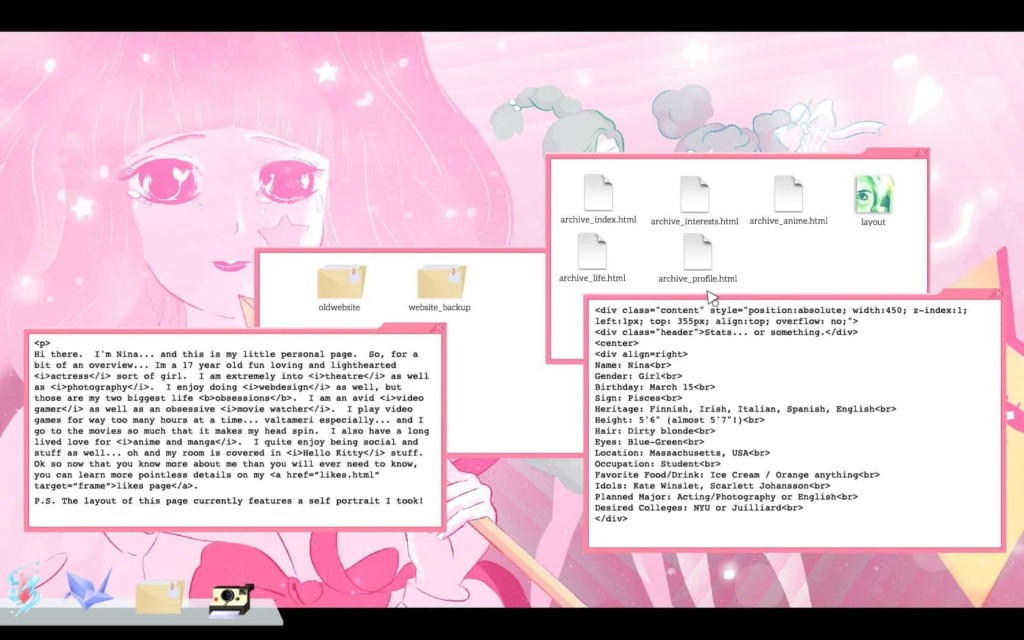
Unrealistic Goals
Thoa: Design for a small scope with one strong feature. Don’t try to make a game with many features, many levels, many…anything. Choose one thing and do it better and different. You can’t fight the quantity battle, but you can be unique.
If you come from a AAA background, say goodbye to fame. You will probably never be the star of E3 anymore. Get ready for humility.
Viglione: “Magnum Opus Syndrome” is very dangerous. A lot of indie devs quit their jobs to write the Great American Video Game right out of the gate.
You’ve got to be honest with yourself: Do you have the time and money to make your magnum opus right away? Probably not. That doesn’t mean that you should let it go, it just means that you should do things that get you toward it.
Working on a game that sells well and is consistent with your vision of games that is NOT your magnum opus isn’t selling out, it’s just a step on the trail that gets you there. Your masterpiece will be better served by waiting until you have the experience, connections, time and money to do it right. Some people are lucky enough to have those right out of the gate, but I’m guessing most indie studios are not that lucky. I think it’s a depressing thought to spend years on your dream game only to watch it turn into a nightmare.
Tsao: [Not] knowing the scope of the project clearly. We learned the importance of scope the hard way multiple times, biting off way more than what we could chew. We also, at times, underestimate the amount of work we have to do to promote our games.
Lack of Perspective
Humfrey: It’s a bit of a cliché that developers like to build the games that they themselves would want to play, and hopefully if they do that, then some other people will feel the same. While I think that’s an admirable approach, you shouldn’t forget your audience, otherwise your success is a bit of a lottery. I think it’s a matter of balance – don’t forget your audience, but don’t pander to them either.
Viglione: Coverage and conversation do not equal sales. That’s not to say that you shouldn’t try to get them, but just be careful. Those things are great, but a great discussion on Reddit will not buy dinner. Make sure that you have some kind of engagement always available for potential future players to maintain the limited engagement your coverage gets – sign up for mailings, Twitter following, etc. Make sure you try to convert some of the audience of the YouTuber that played your game into your own audience.
Freeman: The games world can be very intimidating. There are tons of people trying to make games just like you are. It’s easy to get down on yourself and think that everyone else is doing better than you. Don’t let impostor syndrome defeat you!
Getting Lost in the Crowd
Thoa: Don’t design a game only based on what you like. Get some hooks, get it to stand out. It’s the hardest part, but it’s an absolute necessity for an indie game. People play AAA games for great entertainment, and they play indie games to be surprised. To be touched. To get something different.
Humfrey: Don’t try to copy another successful game. People are driven by shiny new things, and if you’re copying another game, it’s likely that the hook will be old news by the time you release yours.
Viglione: If you want to make money from game development, as opposed to just doing it as a hobby, you need to worry about overall product design in addition to gameplay design.
Let’s say I have my heart set on making an action platformer, because I enjoy playing them – is making a platformer with great gameplay going to be enough? Have I analyzed if there’s even a market for it? Do I know what will make my game stand out in the sea of similar titles, how people will find out about it, and why will they want to play this one as opposed to the hundreds of others?
Experienced indies have to develop good intuitive understanding of their market and product positioning. But a new developer might not realize they have to think about these things as well as make a great game.
Tsao: Developing the game is only part of the struggle. We had to be a lot more mindful about getting the word out and promotions. Making games is like other startup fields in that relationships really matter. We had to come out of our shells, talk to people, and build meaningful relationships.
The Buck Stops with You
Keren: A game is a sum of all its parts, and if a certain feature is not done or directed by you, it’s not going to be done at all! Yes, you’ll have to create menu systems, analytics, localization, tutorials, porting, and many more less glamorous features.
Making your own creative project is satisfying, but highly taxing. You’ll feel like in a perpetual crunch, which is emotionally exhausting. Be sure to make time for life: meet with friends and leave time for other activities and hobbies.
Park: Never make a promise you aren’t absolutely sure you can keep: stating your level of certainty is not a sign of weakness.
Being your own boss and having that freedom is wonderful…except there can be quite a feeling of isolation in that nobody is looking out for you and there to tell you what to do. Being an indie developer is my favorite job and I wouldn’t trade it for any other – but it’s also not for everyone.
Any final words of advice?
O’Neill: Keep a positive attitude and make a lot of business connections in the industry. You don’t get there by being a jerk.
Thoa: If you are not a video game programmer and you want to start an indie team, you better find a great programmer. An exceptional one. It’s still the key to making awesome video games.
Park: Play testers are not there to validate your feelings; they invariably have something useful to say that you don’t already know…and might not like hearing. Listen to them with the appropriate grain of salt, and you’ll be much the wiser for it.
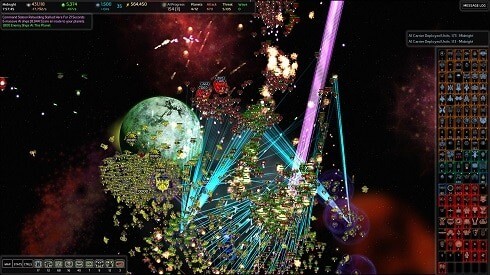
Humfrey: Play games! Most developers I’ve met prefer creating games to playing them; they’re two surprisingly different activities. Not everyone has this affliction, but Jon and I don’t play enough, and as such we sometimes fall out of the loop with some of the great work that’s being released.
Some of the indie games being made today are the most inspirational work that our industry has ever produced, and we can all learn from them, both players and developers alike.
Tsao: While it’s getting harder to make a game and for people to discover it, game development is still one of the rare fields where creativity meets amazing technological innovations. It’s an exciting field to be in, and really all it takes to be in it is to just make a game.
Freeman: Make smaller games! Make games that take less time to make! Pay super close attention to scope and any bloat your game is accumulating. Shipping is paramount. Ship lots of games. Find your voice as a designer. Take breaks and take care of yourself. Making games is super hard – don’t let it take over your life and make you miserable. Taking time off from your game will make it better because you will come back to it with more perspective and fresh ideas. Figure out what makes you stand out, and don’t lose sight of your personal goals. You can do it!
If you have never coded a thing before, you might also be interested in checking out this article, just to start getting into the mindset of a programmer:
Top 10 Ways to Teach Yourself to Code

